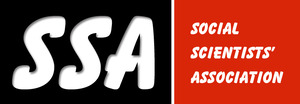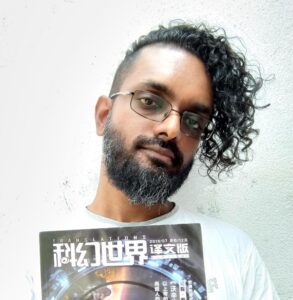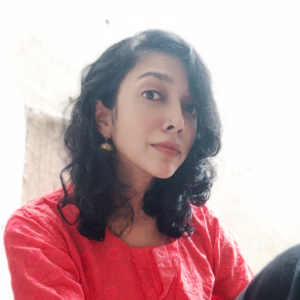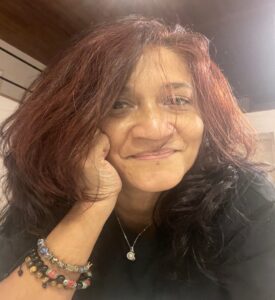Best Reads 2023
Vajra Chandrasekera
I have meant to read Edward Said’s Orientalism (1978) my whole adult life but only picked it up while glued to the current horrific news about Israel’s genocide in Palestine. On reading the book for the first time, I found perhaps unsurprisingly that I already knew it. Not Said’s close readings of specific historical Orientalists, which were fascinating and mostly new to me, but in the book’s broader arguments, which have long ago become such a core part of our shared intellectual heritage that if one reads at all, one has already grappled with Orientalism and orientalism alike. Said’s book therefore remains not only a vital text, but in understanding culture at all—such as reading the international news, in 2023—as urgent as it was when first published.
Anna Kavan’s Ice (1967) is the oldest of my selections and by far the strangest, and like the others a book I had meant to get to for some years before I actually did. The titular ice could refer to heroin, echoing Kavan’s own struggles with addiction, but also to the apocalypse of ice the story describes. The book has been called science fiction but also slipstream, surreal, dreamlike—all the words that come up when a text confounds expectations. It is a story about war, mental illness, and the end of the world, and as such is as much, if not more so, a book of our moment as it was hers.
Siva Ahrooran’s The Innocent Victims (2019) is a social novel in contemporary realist style, about a widow in post-war Jaffna navigating the complexities of remarriage and single parenthood while dealing with escalating workplace harassment. Like all of his books to date, this was written during his 17 years of imprisonment under the Prevention of Terrorism Act. He was released in May this year, acquitted of all charges after having already endured punishment, when a judge finally decided that a coerced false confession was inadmissible. The book can therefore also be read, as I read it, as entangled inextricably with the indelible image of Ahrooran being escorted by a policeman on stage to accept a State literary award before being sent back to prison. This is not allegory but a reminder, in speaking of victimhood and innocence, that the art is not separable from the artist.
Vajra Chandrasekera is from Colombo, Sri Lanka and is online at vajra.me. His debut novel The Saint of Bright Doors was a New York Times Notable Book of 2023, and his short fiction, anthologized in The Apex Book of World SF, The Gollancz Book of South Asian Science Fiction, and The Best Science Fiction of the Year among others, has been nominated for the Theodore Sturgeon Memorial Award.
V.V. Ganeshananthan
Early in the year, I tore through Letters to a Writer of Color, edited by Deepa Anappara and Taymour Soomro. It’s a fantastic volume, full of authors like Amitava Kumar, Tahmima Anam, Tiphanie Yanique, Kiese Laymon, Jamil Jan Kochai, and Ingrid Rojas Contreras writing about topics like humour, trauma, violence, showing and telling, and art and activism. The pieces are complex, surprising, humane, frank, and introspective; they made me feel part of a conversation I had been longing for. Soomro’s opening piece on origin stories and Anappara’s conclusion, about the ideal conditions for writing, were two of my favourite contributions. I wish this book had been around when I was younger, but I am so glad it’s on my shelf now.
This fall, I returned to one of my favourite novels of all time, The Amazing Adventures of Kavalier & Clay, by Michael Chabon. Kavalier & Clay, which won the Pulitzer in 2001, is a baggy, delicious monster of a novel, clocking in at almost 700 pages. In the story of writer Sam and artist Joe, two Jewish cousins and friends who work together to create a classic comic book character, Chabon offers a canonical American tale, one that enfolds us in its long, artful, witty sentences while sparing us nothing about the political ugliness it depicts. The story starts in 1939, when American-born Sam and émigré Joe meet, and includes the brutality of World War II. It goes all the way to 1954, with a portrayal of the homophobia of the Subcommittee to Investigate Juvenile Delinquency of the Senate Judiciary Committee, an actual factual committee that at that juncture in history devoted its considerable energies to determining whether comic books were corrupting children.
Finally, I want to mention River Spirit by Leila Aboulela. I have been a fan of Aboulela’s for decades; this year I met her for the first time. I interviewed her for the Literary Hub podcast I co-host with Whitney Terrell, Fiction/Non/Fiction, which is about the intersection of literature and the news. It was fascinating to hear her talk about her first historical novel, a stunning and deeply imagined piece of work covering the period leading up to the British occupation of Sudan. Its broad sweep includes multiple perspectives. Later, I met her in person in Toronto, where we were on a panel together at a literary festival. To meet and read a writer I have long admired at the moment that her work is taking a new turn was a special pleasure.
V.V. (Sugi) Ganeshananthan is a novelist and journalist whose novel Brotherless Night (Random House, New York 2023) is out now.
Adilah Ismail
Over the past few years, my reading has gravitated more towards nonfiction and a nonfiction book that stayed with me in 2023 was Toni Morrison’s The Source of Self-Regard. I came to it at the end of the year when I was preparing to lead a workshop on social justice and writing. The book spans essays, speeches, and meditations over the course of her career and many of the pieces feel apt for today. A short piece, ‘Racism and fascism’ for instance, feels like it could be transplanted to multiple global contexts today. Morrison’s essays and speeches thrum with sharp, incisive insights written in the way only Morrison can.
Another book that marked the year for me, especially with the rise of AI and the subsequent conversations it sparked, was Ellen Ulman’s Life in Code. Ellen Ullman was a computer programmer in San Francisco in the late 1970s and was part of an almost exclusively male group that shaped the internet’s ascent. Life in Code would draw anyone interested in technology, ethics, and capitalism but is repelled by Silicon Valley techspeak slathered in buoyant marketing and corporate jargon. Ulman’s essays are lyrical and philosophical, and she throws in personal stories and tech-criticism into the mix, giving us insights into the tech worlds that have sculpted and continue to sculpt our lives in unimaginable ways. Some essays are stronger than others, but overall, an enjoyable read.
With fiction, I fell down a very enjoyable Claire Keegan-shaped reading hole this year after her Booker nomination. Keegan’s books are short, contain succinct prose, and she wields language deftly, without a single stray, superfluous word. You are reminded that sometimes less is definitely more. I enjoyed Small things like this, Antarctica, and So late in the day, but I kept thinking about Foster. A taut novella, I devoured Foster within an hour and it stayed with me long after I read it. Keegan has a brilliant eye for setting scenes and dialogue, leaving the reader with a strong sense of the Irish landscape. Foster is a bittersweet, simple, sparse story with a poignant, feel-good ending, and perhaps we could all do with a few feel-good endings this year.
Adilah Ismail is a writer and communications practitioner based in Colombo, Sri Lanka. She writes a newsletter at: https://alifeofsaturdays.substack.com/
Vivimarie VanderPoorten




